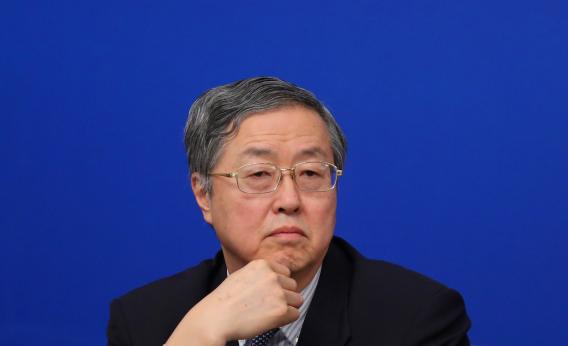Journalists sometimes fall prey to the sin of looking for the keys under the lamppost, and I don’t want to do that on the subject of the turmoil in financial markets over the past week. I and many of my colleagues understand the Federal Reserve pretty well, so you’ve probably heard a lot about the Federal Reserve’s role in this. The Chinese banking system and the internal politics of the People’s Bank of China are much less well-known, but it should be emphasized that PBOC efforts to crack down on bad lending appear to be playing a role as well. David Barboza has a good overview in the Times this morning, but I’ll confess to being a little puzzled as to what the problem is exactly.
One common scenario in developing countries is this: Some exciting economic reforms happen, and so foreign investors want to put money into the reforming country. For a little while, the country booms. The boom is partially because of the reforms, but partially simply reflects the huge inflow of foreign investment. Since the foreigners don’t actually know what they’re doing, rather than managing investments in detail they mostly just lend money to local banks figuring that the local banks know what to do. But it turns out the local banks don’t actually know what to do; it’s just that as long as Country X is the sexy investment, then almost any investment in Country X pays off. But then the music stops, the local loans start going bad, the foreign investors start pulling their money out, and you get a sudden stop and an economic collapse. That was Thailand in the late 1990s and it was roughly Spain in the mid-aughts as well.
But while China has a lot in common with those scenarios and many seem inclined to assimilate what’s happening there to that story, I agree with S.C. at the Economist that this doesn’t quite add up. China, after all, is a large net exporter of capital to the rest of the world.
All that “currency manipulation” you’ve heard about? That’s China trying to prevent net inflows of foreign investment capital into the country. Which means it doesn’t seem like China can have a run. If Chinese banks’ domestic loans go bad, that may require a costly bailout, but the Chinese government has the yuan. All they need to do is stop pouring money into American currency and put it into Chinese banks instead. The fact that the Chinese banks are mostly state-owned already should if anything make the bailout process simpler. None of that changes the fact that Chinese growth has slowed down and is likely to keep slowing down simply because they’re running out of industrialization to do. But the specific credit crunch issue that seems to be panicking people doesn’t quite make sense to me.
